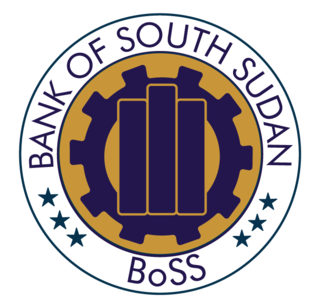Related Research Articles

Central Equatoria is a state in South Sudan. With an area of 43,033 square kilometres (16,615 sq mi), it is the smallest of the original South Sudanese states. Its previous name was Bahr al-Jabal, named after a tributary of the White Nile that flows through the state. It was renamed Central Equatoria in the first Interim Legislative Assembly on 1 April 2005 under the government of Southern Sudan. Central Equatoria seceded from Sudan as part of the Republic of South Sudan on 9 July 2011. The state's capital, Juba, is also the national capital of South Sudan. On October 2, 2015, the state was split into three states: Jubek, Terekeka, and Yei River. The state of Central Equatoria was re-established by a peace agreement signed on 22 February 2020.

Norwegian People's Aid was founded in 1939 to provide post-conflict reconstruction assistance and humanitarian relief during conflicts. NPA is now engaged in more than 33 countries in de-mining, humanitarian relief, promoting democratization; the rights of indigenous people, equality; and fair distribution of power and resources. NPA currently operates de-mineing activities in 16 countries and played a central role in the International Campaign to Ban Landmines and the Convention on Cluster Munitions which was signed in Oslo in 2008.

The politics of South Sudan concern the system of government in the Republic of South Sudan, a country in East Africa, and the people, organizations, and events involved in it.

Israel – South Sudan relations refers to the bilateral ties between the State of Israel and the Republic of South Sudan.

The Transitional National Legislature of South Sudan is the legislature of South Sudan. The Transitional National Legislature consists of the Transitional Council of States and the Transitional National Legislative Assembly.

The Cabinet of South Sudan is the Executive Branch of the Government of South Sudan. The Cabinet members are appointed by the President and report to the President.

India–South Sudan relations are the bilateral ties between the Republic of India and the Republic of South Sudan. India recognised South Sudan on 9 July 2011, the day South Sudan became an independent state. India maintains an embassy at Juba, and South Sudan maintains an embassy in New Delhi.
The post conflict South Sudan has huge challenges in delivering health care to the population. The challenges include: crippled health infrastructures, nearly collapsed public health system, and inadequate qualified health professionals. The country is far from achieving the MDGs by end of 2015. The health system needs a major resuscitation, in addition to supporting and developing health training institutions.

Water supply in Southern Sudan is faced with numerous challenges. Although the White Nile runs through the country, water is scarce during the dry season in areas that are not located on the river.

The Ministry of Foreign Affairs and International Cooperation is a cabinet-level government ministry responsible for the implementation and management of South Sudan's foreign policy and international activity. The incumbent minister is [[James Pitia Morgan South Sudan's president fires foreign minister|url=https://www.aa.com.tr/en/africa/south-sudans-president-fires-foreign-minister/2360701%7Caccess-date=2021-09-10%7Cwebsite=www.aa.com.tr}}</ref>

The Bank of South Sudan (BoSS) is the central bank of the Republic of South Sudan. Established in July 2011, by an Act of Parliament, it replaced the now defunct Bank of Southern Sudan, a former branch of the Bank of Sudan, which had served as the central bank of South Sudan, during the period between February 2005 until July 2011. The bank is fully owned by the Government of South Sudan.
The Ministry of Finance and Planning is a ministry of the Government of South Sudan. This ministry was first headed by Honourable David Deng Athorbei after the country gained her independence from Sudan in 2011.
The Ministry of Petroleum is a ministry of the Government of South Sudan. The incumbent minister is Puot Kang Chol., the ministry of petroleum contributes more than 90% of South Sudan's total income through oil production and exportation via pipeline from the oil fields in South Sudan to Port Sudan on the Red Sea. The Government of Sudan taxes South Sudan heavily for using the pipeline and its associated infrastructure. The South Sudanese economy is sensitive to changes in global oil prices, with declines severely affecting the country's national income. In June 2021, the ministry launched its first Oil licensing round in Juba. According to new studies assigned by the ministry, approximately 90% of the country's Oil and gas reserves remain unexplored.
The Ministry of Electricity, Dams, Irrigation and Water Resources is a ministry of the Government of South Sudan. The incumbent minister is David Deng Athorbei, while Rhoda David Alak serves as deputy minister.
The Ministry of Wildlife Conservation and Tourism is a ministry of the Government of South Sudan. The incumbent minister is Rizig Zackaria Hassen, no deputy minister was name.
The Ministry of Culture, Youth and Sports is a ministry of the Government of South Sudan. The incumbent minister is Dr. Albino Bol Dhieu.

The following outline is provided as an overview of and topical guide to South Sudan:
References
- ↑ "Transitional Government of National Unity (TGoNU) of the Republic of South Sudan | Embassy-Southsudan".
- ↑ "OPP dismisses controversial Mayen". Eye Radio. 2021-08-07. Retrieved 2022-08-13.